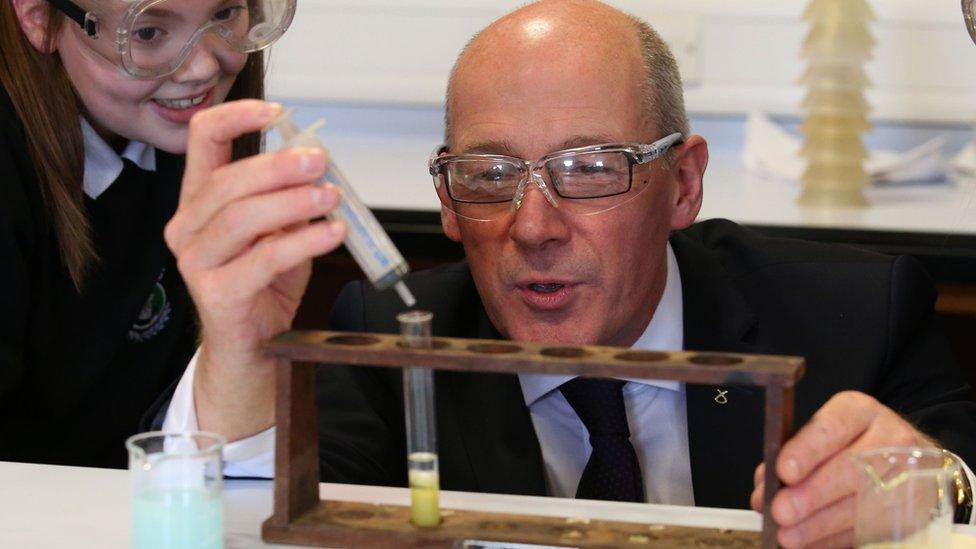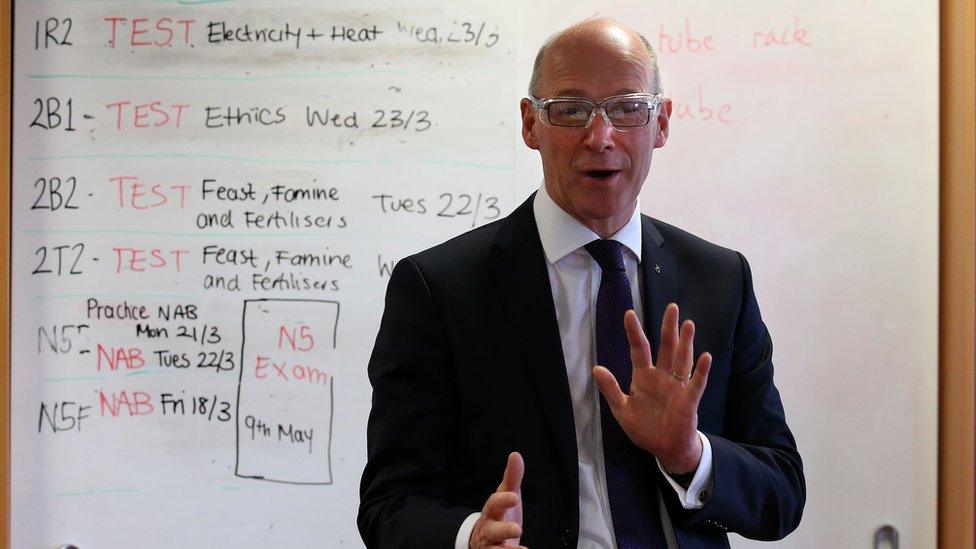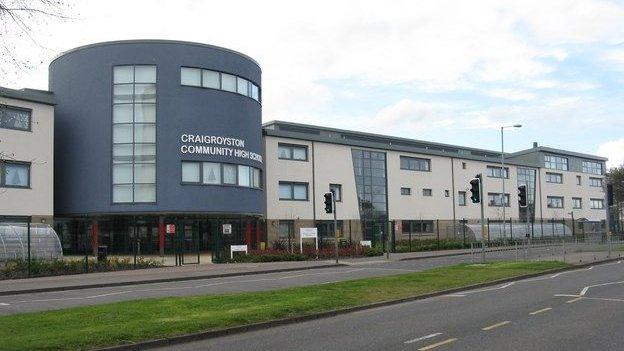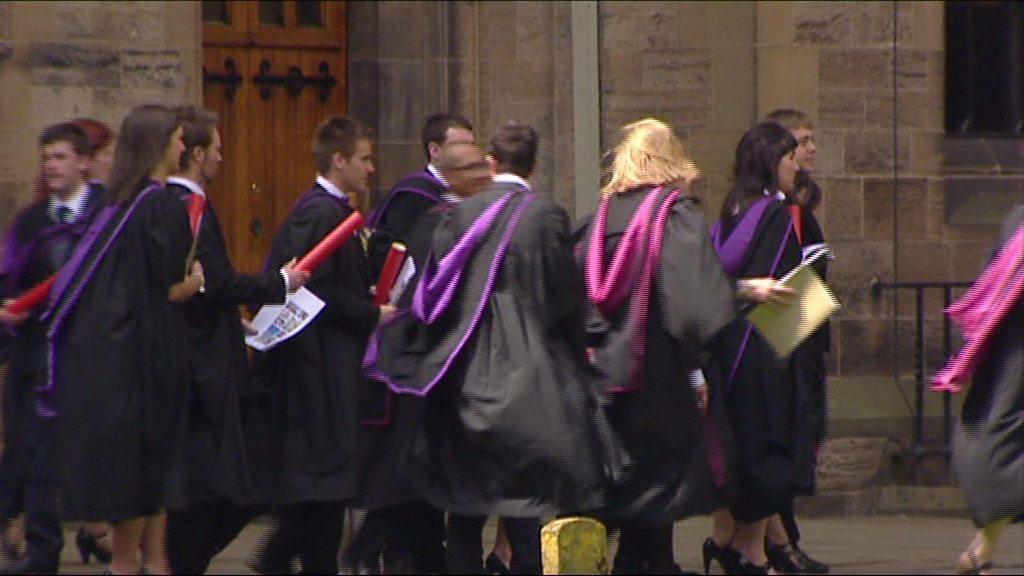John Swinney asks for ideas to reduce teachers' workload
- Published

John Swinney has written to union leaders in a bid to address teachers' workload problems
Education secretary John Swinney has asked Scotland's teaching unions to suggest ways to reduce workloads.
In a letter to union leaders, he asked them to identify "specific, tangible ideas" to support his aim by the end of the week.
It came ahead of a major summit on education reform in Edinburgh.
It was hosted by First Minister Nicola Sturgeon, who has announced additional support for headteachers.
This will include providing extra training for both new and experienced headteachers, and an "international exchange programme" for school leaders.
Ms Sturgeon also announced plans to work with councils to train "community education champions" to provide additional support to headteachers.
Industrial action
The summit saw politicians, teachers and other experts discuss how best to raise school standards and close the attainment gap between the country's wealthiest and most deprived pupils.
It will help to inform a "delivery plan" which the Scottish government has pledged to publish by the end of the academic year.
The country's largest teaching union, the EIS, is currently balloting its members over industrial action as part of a dispute centring on claims of excessive workloads for secondary teachers caused by the new National Qualifications.
Mr Swinney said he had identified teachers' workloads as one of his "key challenges" since taking on the education remit in May.
He said his letter to unions demonstrated that he was keen to work with them, as well as councils and schools, to make progress on "this important issue".
"We intend to move quickly to ensure the outcome of my letter to unions, and the discussions during today's summit, inform a bold education delivery plan that we will publish before the end of this month," he added.

The education minister will join First minister Nicola Sturgeon at a summit in Edinburgh
The event was taking place at Craigroyston High School, which has been praised for improving the performance of youngsters from relatively disadvantaged backgrounds.
Discussions were being held behind closed doors but topics were likely to include:
Craigroyston High School's own success in improving attainment. Attendees will have a chance to hear directly from pupils about this
Conclusions of the recent OECD report on Curriculum for Excellence and how to build on it
Empowering teachers to drive improvement
Empowering parents and wider communities to be involved in the life of the school and drive up attainment.
Ms Sturgeon has said education would be a top priority of her government, which is committed to "delivering a world class education system for all".
The Scottish Conservatives said too many schools have been coasting along without real progress being made in basic skills and attainment levels.
'Greater autonomy'
Education spokeswoman Liz Smith MSP said: "The Scottish Conservatives have long argued there needs to be much greater autonomy so that headteachers have the maximum facility to develop the leadership in their own schools without being constrained by policy from on high.
"The OECD said clearly that far too many heads and teachers were spending too much of their time on red tape and interpreting complex guidance rather than with getting on with the job in the classroom.
"That is the key message from teachers which John Swinney must urgently address."

The meeting were being held at Craigroyston Community High School in Edinburgh
Scottish Labour leader Kezia Dugdale called for the summit to be a "spur to bold action".
"Our teachers do a wonderful job but they do it against a backdrop of poverty, inequality and growing SNP cuts - it doesn't have to be this way," she said.
"At today's summit, Nicola Sturgeon must give a firm commitment to ending the cuts and using the powers of the Scottish Parliament to invest in education - that starts with a 50p top rate of tax on the richest few earning more than £150,000.
Among a series of reforms planned by the SNP government is the creation of new "educational regions", decentralising management and giving parents and teachers more decision-making power.
But any suggestion of a radical reform in the way schools are actually run - or any suggestion of the role of councils being watered down - is likely to be fought by both local government and the teachers' unions.
EIS general secretary Larry Flanagan said: "It is clear that the last thing Scottish education needs at the present time is structural re-organisation. This would be a huge distraction and frankly a waste of resources and I would caution the new cabinet secretary against such a move."
"Regionalisation should be about enabling teacher dialogue, networking and collaboration to enhance education provision in schools, rather than about a turf war between Scottish government and local authorities, much of which is largely budgetary driven."
- Published27 May 2016

- Published27 May 2016